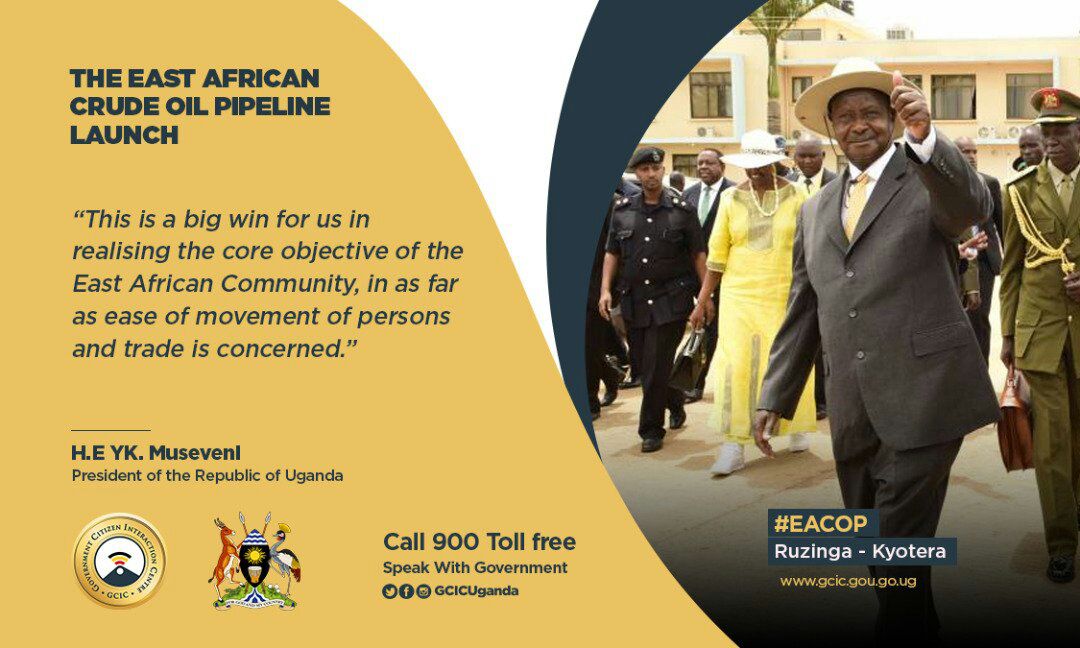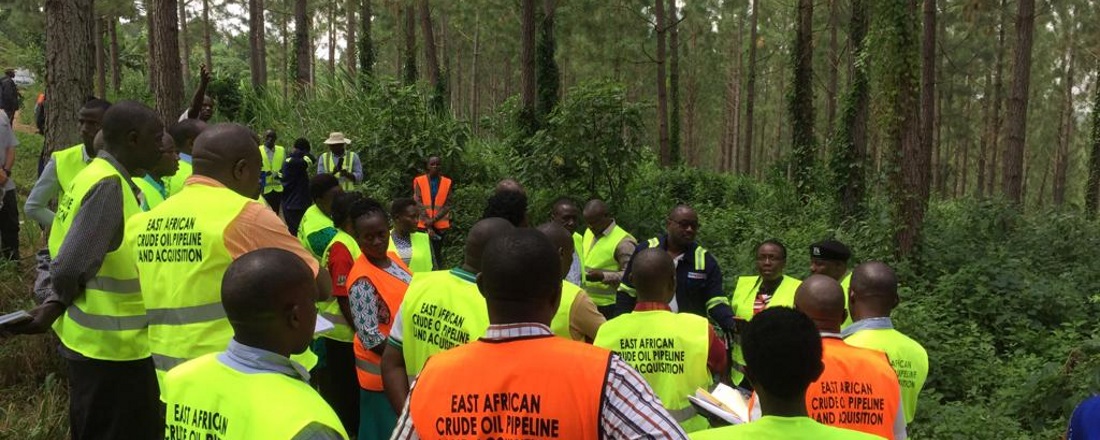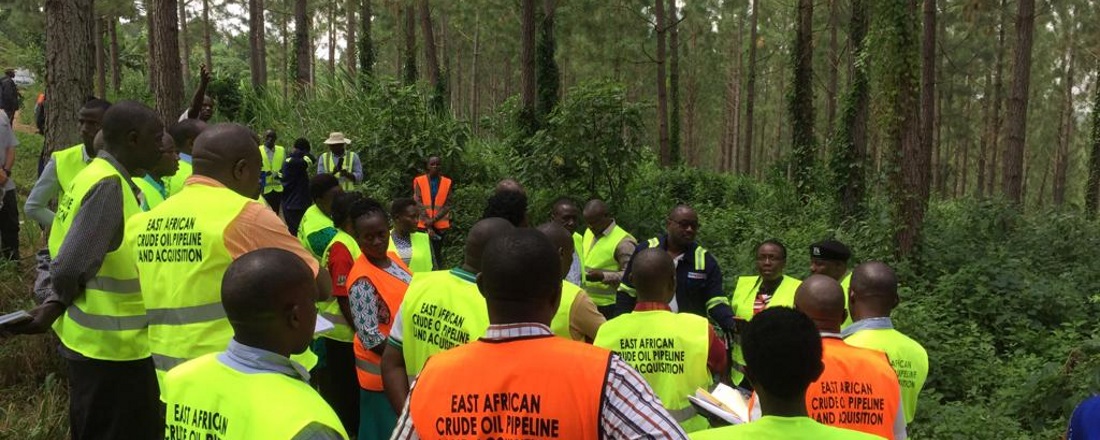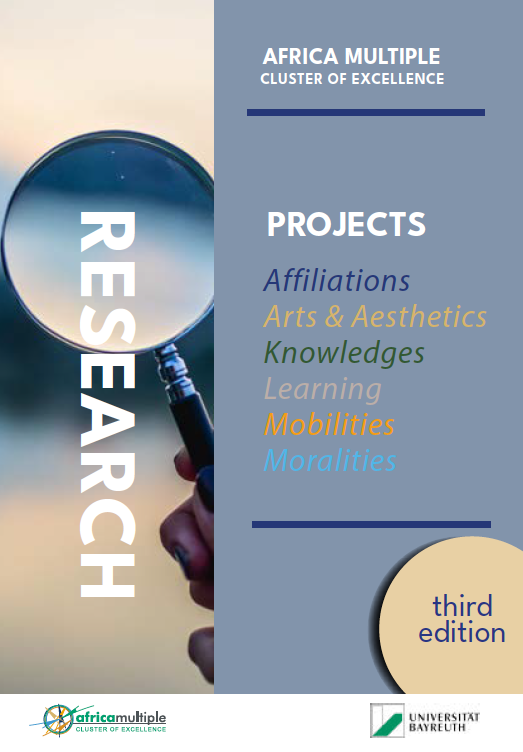Oil Movements: the Production and Government of Petro-(im)mobilities in East Africa
-
Research Section: Mobilities
-
Project duration: 01.07.2019 - 31.07.2023
Summary
East Africa’s oil industry is shaping into a sector of significant politico-economic importance. Discoveries of commercially viable hydrocarbon deposits in Uganda’s and Kenya’s Lakes Albert and Turkana Basins respectively, have influenced ambitious infrastructure developments that start from but go beyond the two countries. This places the region in a geopolitical resource spectrum, marked by two multi-billion-dollar infrastructure projects. Uganda is fast tracking the development of the East African Crude Oil Pipeline (EACOP) project between Hoima and Tanga; as Kenya develops its multi-model Lamu-Port-South Sudan-Ethiopia-Transport (LAPSSET) corridor, with an oil-pipeline component to move the country’s oil from Turkana to Lamu port. Each of these projects forms part of national development visions, that are well-knitted into a complex network and interconnections of international, transnational and local actors. These interconnections highlight the significance of performing mobilities. In this project, we explore how “oil movements” viewed within the perspective of these two projects, shape multiple (im)mobility landscapes, practices, relations; and how these landscapes, practices and relations are rendered (un)governable.
Key Questions
We pose three research questions:
- What power infrastructures govern the relational production of petro-(im)mobilities within the two East African projects?
- How do the material constituents of the projects influence the perception and performance of subaltern mobility practices along the two infrastructure corridors?
- In what ways have the different interpretations of the infrastructures influenced the modes of (im)mobility relations and performances among different “infrastructure communities” within the project areas?

Promotion of the East African Crude Oil Pipeline (EACOP) at the village of Ruzinga in the district of Kyotera. Photo: www.eacop.com
Methods and Concepts
Our empirical approach builds a data base constituted of recorded face-to-face conversations with government officials; development policy analysts; local community members and leaders; and other key stakeholders in the development of the two infrastructure projects. We also examine the changing ontological contours in specific areas where footprints of the project are evident. For the pastoral communities in Kenya’s Turkana region, we posit the development of the LAPSSET to their seasonal peripatetic tradition. Pictures and maps are useful data, adding to audiotaped and transcribed conversations. We are heavily inspired by Michel Foucault’s concept of governmentality and Jørgen Ole Bӕrenholdt’s coined term “governmobility” as an alternative way of seeing and explaining specific contexts of power relations that are integral to multiplicities of mobilities.
Vision of the Study
The wider vision of this research project is to develop a theoretical understanding of how different kinds of mobility infrastructure projects are interpreted by different actors in real time and space. This enhances the understanding of relational features of such projects with pre-existing realities of those that the projects directly affect. We, therefore, do not envision this as an oil-movement research, but a research on the production of mobilities resulting from unique interpretations of resource frontiers by different actors. In other words, this empirical inquiry into East African “oil-mobilities” promises to generate new theoretical insights that could help explain how strategic natural resources influence the production and government of patterns of movement and ways of resisting or performing such movements.
Contribution or Relation to the Cluster’s Aims & Goals
Whereas mobility is itself integral to constellations of multiplicities, the nodes of mobility (i.e. the underlying frames around which (im) mobilities occur) should be viewed in terms of their specificities. Oil, in this case, is a specific substance that influences mobility (and thus multiplicity) in different ways. Approaching East Africa’s multiplicities as founded around governing movements and stasis of people, things, ideas and practices resulting from oil extraction provides an opportunity to link the already fluid dynamics of (im)mobilities of African societies to crucial forces of globally sensitive substances such as oil. From an interdisciplinary point of view, the project envisages triangulating epistemological perspectives drawn from political sciences, geography, economics, and gender studies, as it explores East Africa’s oil-(im)mobilities as a function of governmental power in the production and control of multiple spaces of (im)mobilities. The project has deliberately chosen to associate with a specialist in gender and natural resource management in Uganda, as a way to incorporate a gender element in the analysis of oil-(im)mobilities in East Africa. Not only is this in agreement with the Custer’s agenda of Reconfiguring African studies by creating platforms through which research informs policies, it is also our conviction that bringing together this team of researchers from Kenya and Uganda enhances a continuous cooperation with African and Africa based academics.
Project Team

Prof. Dr. Martin Doevenspeck
Principal Investigator
Political Geography
University of Bayreuth

Dr. Paddy Kinyera
Postdoctoral Researcher
University of Bayreuth

Prof. Dr. Goretti Nabanoga
Natural Resource Management and Gender Studies
Makerere University

Dr. Fredrick O. Okaka
Lecturer
Department of Geography
Moi University, Eldoret
Further Links / Key References
- Bӕrenholdt, Jørgen, Ole, 2013. Governmobility: The powers of mobility. Mobilities, 8 (1). 20–34.
- Foucault, Michel, 1991. Governmentality. In Burchell, G., Colin, G., & Miller, P. (Eds.), The Foucault Effect: Studies in Governmentality with Two Lectures By, and an Interview with Michel Foucault (pp. 87-104). Chicago: The University of Chicago Press.
- Jensen, Anne, 2011. Mobility, space and power: On the multiplicities of seeing mobility. Mobilities 6 (2), 255–271.
- Kinyera, Paddy, 2020. The Making of a Petro-State: Governmentality and Development Practice in Uganda’s Albertine Graben. Nomos. Baden-Baden
- Kinyera, Paddy and Doevenspeck, Martin, 2019. Imagined future, mobility and the making of oil conflicts in Uganda. Journal of East African Studies. https://doi.org/10.1080/17531055.2019.1579432
- Kinyera, Paddy and Doevenspeck, Martin, 2021 (accepted). Wertschöpfungsketten und Konflikt: Die East African Crude Oil Pipeline in Uganda. Geographische Rundschau 12.
Oil movements: the production and government of petro-(im)mobilities in East Africa
Project Directors
- Prof. Dr. Martin Doevenspeck
- Paddy Kinyera, Political Geography, University of Bayreuth
- Prof. Dr. Goretti Nabanoga; Natural Resource Management and Gender Studies; Makerere University, Uganda
- Dr. Fredrick Okaka, Human Geography; Moi University, Kenya
Summary
The discoveries of commercially viable hydrocarbons in East Africa, for which the development of strategic infrastructures in Uganda, Kenya and Tanzania are underway, squarely puts the region within the frames of transboundary petro-politics. East Africa’s oil industry does not only promise substantial economic development and energy security within the region, but also significant profits for the oil multinationals involved. The region is a striking example of how (im)mobilities framed around substances such as oil are integral to socio-political and socio-economic issues. We study the dynamics of oil movements to offers n an interdisciplinary understanding of how inter-state power relations are integral to the (im)mobility of people, ideas, practices and things. Over the last 10 years, the subject of hydrocarbons has attracted a series of empirical studies, particularly around oil policies of individual states, oil-linked tensions, popular aspirations and regional petro-politics. A crucial observation is that the political and economic future of East Africa is likely to be immensely influenced by the developing landscape of petro-capitalism, characterized by the ceaseless movement of petro-ideas, materialities, and practices. However, there continues to be a lack of research into how this landscape comes to bear on the region’s configurations of new patterns of mobilities. The inquiry into East African “oil-mobilities” promises to generate new empirical and theoretical insights that could help explain how strategic natural resources influence the production and government of patterns of (im)mobilities




